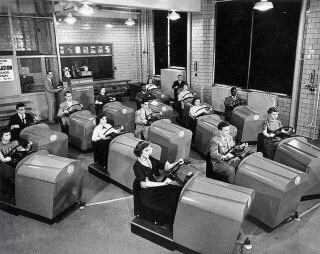
Have you noticed how savvy buyers are these days? Rather than rely heavily on salespeople to educate them on how to solve an issue or pick the right product, they’re coming to the table with a slew of research under their belt, confidence, and a pretty good idea of exactly what they want and who they want to fulfill that need. They’re evolving. Gone are the days of walking into a buying process unprepared.
And in doing so, they’ve quickly flipped the script on how buyers interact with companies and salespeople.
- All their information is ready to go,
- They interview you rather than the other way around,
- Questions are direct and thoughtfully considered,
- Back-and-forth dialogue is commonplace,
- They can see through a shoddy sales pitch,
- Their objections are harder to overcome, and
- They’re prepared to go elsewhere if they don’t find what they need.
Buyers should be as informed as possible — why wouldn’t you take advantage of all the information available as you prepare to make a substantial investment? We’ve become accustomed to going online to search for answers, solutions and providers to our questions and needs. We look for:
- medical explanations when we feel a pain or have other symptoms;
- plumbing videos on how to repair a leaking faucet;
- how to replace your wiper blades or cabin air filter.
Granted, all the research in the world isn’t going to turn someone into a doctor, plumber, or other expert overnight. Yes, some things can be learned and done successfully on your own without hiring an expert. Just don’t be fooled into thinking a bit of knowledge can take the place of medical degrees or years’ worth of apprenticeships and sweat equity.
Conversely, salespeople should take a page from the buyer’s new playbook. Sales is very much a process of continual change, so it’s important to change your behaviors to match the current environment. If you do, you’ll continue to be seen as a credible, trusted resource who can influence the buying process.
This Isn’t Your Father’s Sales Process Anymore
Over the past year, the pandemic has changed the sales process considerably. Before, sales involved traveling to meet people face to face and exchange information in person. Even when those meetings were done remotely, it was utilized as a build-up to an eventual meeting where the sale actually happened. Obviously, that is not the case today. Entire sales conversations are beginning, proceeding, and ending through Zoom, and salespeople are being asked to ditch most of what they are “used to” and, well, adapt.
A misconception, however, is that this is the first real sign of significant change. And that’s not the case. Environmental changes, technological changes, customer needs and expectations, and other factors have been driving the need for behavioral change in selling. So trying to apply your father’s selling process from 10+ years ago to today simply does not work.
If you do, five things will happen:
You run the risk of treating the buyer as if they’re ignorant.
You won’t uncover the buyer’s real need.
You’ll do more talking than listening.
Your buyer will be thinking, “I know all of this already!”
You’ll lose a sale.
Sales Should Adapt or Risk Being Left Behind
Whether you want to change or not, the world has changed — whether it’s because of the pandemic or just a normal evolution of the sales process. If you are motivated to show the same level of success that you have had throughout your career, it’s going to require that your skillset AND behaviors change as well. As customers evolve, you must pick up on things, manage objections, educate, inform, and persuade.
Sales leaders and salespeople should have real conversations about:
- What do they want to achieve?
- Where do they want to get to this year?
- What do they want their bonus to look like this year?
- What kind of learning needs to happen to get there?
One of the best ways to address that is to encourage your reps to practice this dialogue and way of thinking. Even better, enable practicing consequence-free in a simulated learning environment. It’s a way for both new and experienced salespeople to practice skills and try having a conversation in a slightly different way than they are used to. And if it doesn’t go well, it’s totally fine. That’s one of the reasons why I’m a big advocate of using simulations to do this. There’s no consequence. No manager is judging you. It’s not one of your top clients.
You’re free to explore your skill set and behaviors and work on trying things a different way until that feels natural. Simulations are a “perfect practice environment” that, unlike the same tired role plays, offers consistency, zero shortcomings, and sufficient time for practice and skill development in an age where adapting is paramount.